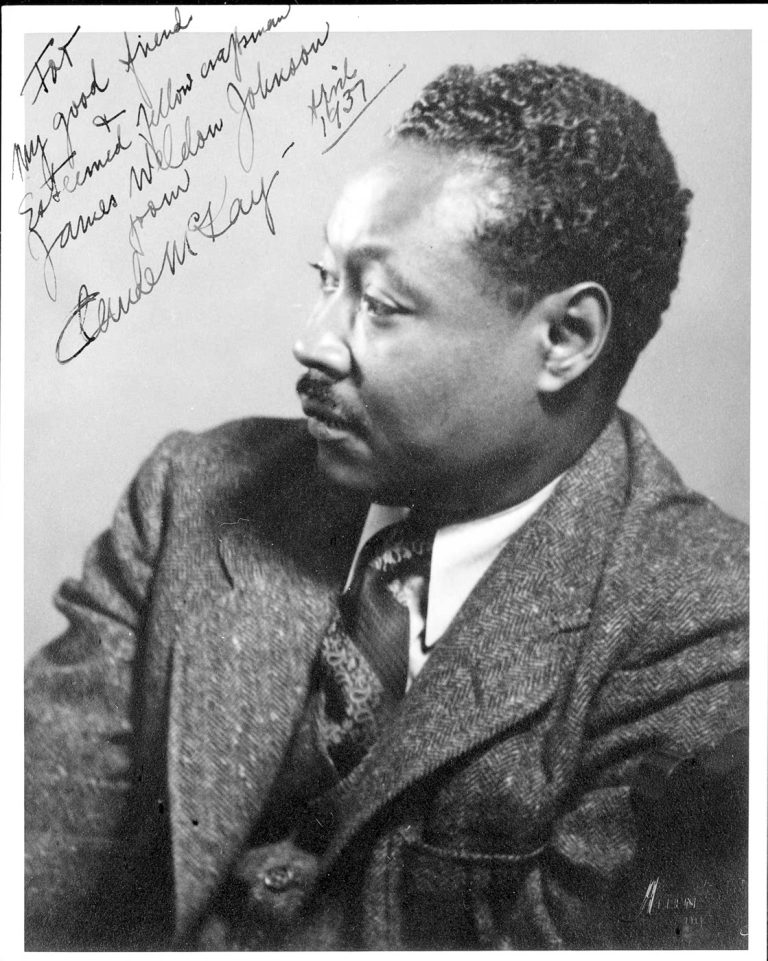Date of Birth: September 15, 1889
Zodiac Sign: Virgo
Date of Death: May 22, 1948
Biography
Claude McKay was a Jamaican-American writer and poet who played a pivotal role in the Harlem Renaissance. Born Festus Claudius McKay in Sunny Ville, Clarendon Parish, Jamaica, McKay’s early exposure to literature came from his brother, who owned a library of English novels, poetry, and scientific books. McKay began writing poetry at an early age and published his first book of poems, “Songs of Jamaica,” in 1912, which celebrated Jamaican culture. In 1912, McKay moved to the United States to attend Tuskegee Institute, but he later transferred to Kansas State University. His experiences with racism in America deeply influenced his writing. McKay’s work often addressed themes of social justice and human rights, and his 1922 poetry collection, “Harlem Shadows,” was one of the first books published during the Harlem Renaissance. McKay’s novel “Home to Harlem” (1928), which won the Harmon Gold Award for Literature, was a best-seller that depicted the vibrant life of Harlem. He also explored themes of colonialism and the African diaspora in works like “Banjo” (1929) and “Banana Bottom” (1933). Throughout his life, McKay traveled extensively, living in England, France, the Soviet Union, and Morocco. He was also involved in socialist and communist movements but eventually distanced himself from these ideologies. In his later years, McKay converted to Catholicism and continued to write until his death.
5 Interesting Facts about Claude McKay
1. Claude McKay was awarded the Harmon Gold Award for Literature in 1929 for his novel “Home to Harlem.”
2. McKay’s poem “If We Must Die” became a rallying cry for the Harlem Renaissance and was quoted by Winston Churchill during World War II.
3. He was the first black writer to be published in “The Liberator,” a leading radical publication of his time.
4. McKay’s autobiography, “A Long Way from Home,” was published in 1937 and provides an in-depth look at his experiences with racism and his travels around the world.
5. Despite his association with socialist and communist movements, McKay later converted to Catholicism and wrote religious-themed works in his later years.
5 Most Interesting Quotes from Claude McKay
1. “If we must die, let it not be like hogs / Hunted and penned in an inglorious spot.”
2. “I will not exchange my freedom for all the splendor in the world.”
3. “For the dim regions whence my fathers came / My spirit, bondaged by the body, longs.”
4. “My philosophy is fundamentally sad, but I’m not a sad person; I’m a happy person.”
5. “Idealism is like a castle in the air if it is not based on a solid foundation of social and political realism.”
Highest Net Worth Achieved
Claude McKay’s highest achieved net worth is not well-documented, but his financial success was modest compared to modern literary figures.
Children
Claude McKay did not have any known children.
Relevant Links
1. [Claude McKay Biography – Poetry Foundation](https://www.poetryfoundation.org/poets/claude-mckay
2. [Claude McKay – Encyclopedia Britannica](https://www.britannica.com/biography/Claude-McKay
3. [If We Must Die – Poem Analysis](https://poemanalysis.com/claude-mckay/if-we-must-die/
4. [Harlem Renaissance – History](https://www.history.com/topics/roaring-twenties/harlem-renaissance

